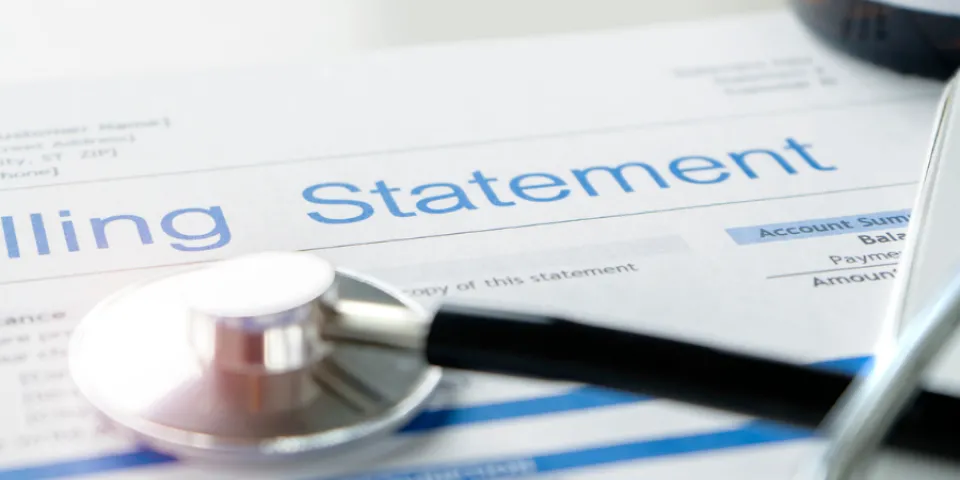Latest
4 Soft Skills You Need for a Career in Medical Billing
Oct 5, 2020

If you’re interested in a healthcare career, but not necessarily in a care-providing role, medical billing and coding could be a good option to consider. Medical billing professionals primarily work on billing and reimbursement, ensuring all payments between a healthcare provider, patient and the insurance company is reconciled accurately. Some companies and organizations group medical billing and coding together, but medical coders focus more on translating and categorizing information from a patient’s medical chart into codes used in national classification systems.
A full-time student at Herzing University Online shares some of the knowledge and skills she has learned while working on her degree.
Student Story
I’ve always enjoyed working in the medical field and learning new things every day. Before enrolling at Herzing, I earned a medical coding and billing certification from a different institution, but as my three children started getting older, I realized I wanted to continue my education because I wasn’t where I wanted to be in life.
I have a relatively small family, and not much support, so I take it upon myself to manage work, school, and day-to-day activities. Although it hasn’t always been easy, I believe going back to school was the right decision.
Below are four skills that I’ve been practicing while working toward my degree that could be beneficial to any aspiring medical biller.
1. Attention to Detail
Paying attention to detail is an important part of medical billing, which is a skill I’ve sharpened even more while completing my coursework at Herzing. In addition to recording payments and issuing bills, medical billers must also ensure that payments received are correct and align with the provider’s records. If there are discrepancies, it is the medical biller’s job to follow up with the insurance companies to correct the issue. Medical billers also need to be knowledgeable about procedures in processing claims for timely and accurate payments for services, as errors could result in processing delays and late payments to the healthcare provider.
2. Communication Skills
Written and oral communication skills are important for medical billers to be able to interact effectively with medical personnel, insurance companies, patients and others. They have to handle payments, accounts and resolve disputes, which could be done face-to-face, over the phone or by email. Medical bills can be complex and confusing, so it’s important that the medical biller remains patient and courteous in communication with others.
The Principles of Communication course at Herzing helped me with this significantly. When I first started the class, I was overwhelmed because I was a bit timid when it came to writing. I now feel more confident in my writing skills, which I know will be beneficial throughout my career.
3. Self-Motivation
Most healthcare facilities are incredibly busy, and employers seek medicals billers with the drive and determination to stay on task independently. This is a skill I’ve practiced a lot as an online student at Herzing because I’ve had to train myself to stay motivated and focused in order to keep up with my coursework and complete assignments on time. I’ve learned how to avoid distractions, such as social media, in order to get things done efficiently.
As a medical biller, keeping focused on the task at hand is crucial. I would like to work from home in the future, so being self-motivated, focused and independent is even more important!
4. Willingness to Learn
As with any career, a willingness to learn is an important quality for a medical biller to have. This is especially true in the healthcare industry, where advancements in technology and new research developments continuously occur and healthcare providers and other professionals must adapt and apply their learnings. With medical billing, employees need to have an understanding of medical terminology and the ability to read medical documents in order to do their job effectively. Billers who are committed to ongoing learning – whether it’s continuing to memorize some of the thousands of medical codes, better understanding changing insurance policies or anything else that helps them work more efficiently – are valuable assets to their employers.
By using these skills, I believe I can achieve my goal of earning my associate degree in medical billing and insurance. I made the right choice by continuing my education after my certification and I believe that I will have greater opportunities. I’m happy that Herzing gave me the opportunity to pursue my goals by furthering my education.
Learn More About Our Medical Billing and Coding Program Options
Bureau of Labor Statistics (BLS), U.S. Department of Labor, Occupational Employment and Wage Statistics 2023 / Occupational Outlook Handbook 2022. BLS estimates do not represent entry-level wages and/or salaries. Multiple factors, including prior experience, age, geography market in which you want to work and degree field, will affect career outcomes and earnings. Herzing neither represents that its graduates will earn the average salaries calculated by BLS for a particular job nor guarantees that graduation from its program will result in a job, promotion, salary increase or other career growth.
Latest
Recent Blog Posts
Subscribe to our Newsletter
Get the latest news you need to know, from study hacks to interview tips to career advancement. Have it delivered right to your inbox biweekly.








